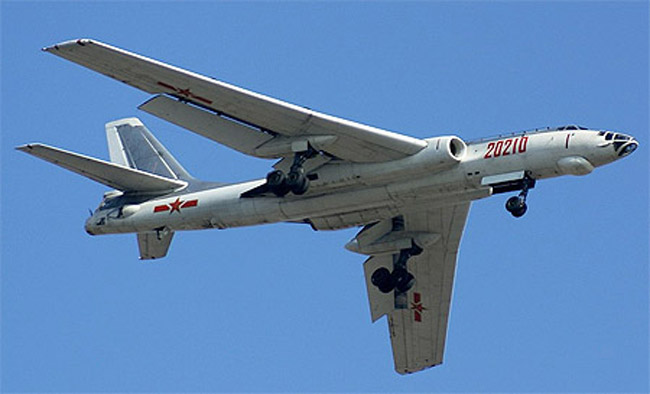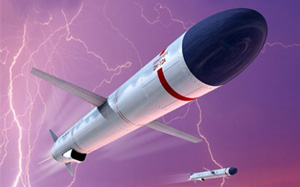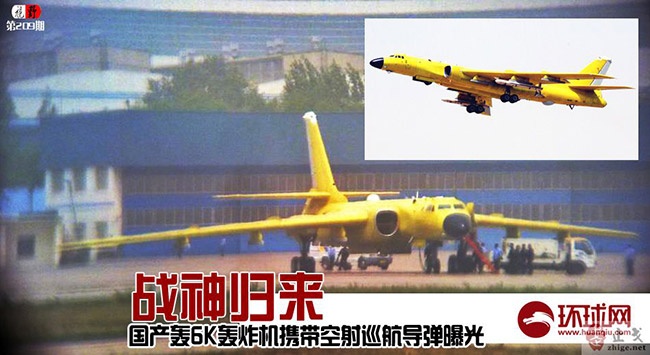

The Chinese People’s Liberation Army Air Force (PLAAF) recently received 15 Xian H-6K bombers with nuclear capabilities, according to Jane’s Defence Weekly.
The H-6K, an updated version of the H-6 bomber (originally, a locally built version of the 1960s vintage Russian Tupolev Tu-16 bomber), is a medium-sized craft designed for long-range attacks, stand-off attacks and large-area air patrol. Unlike its predecessor, the H-6K can carry cruise missiles under its wings. The H6-K also
maneuvers more deftly than the H-6 and requires a smaller crew to operate. H-6K reportedly has a combat radius of 3,500 km. It can carry weapons in the internal weapon bay and on four underwing pylons. The nuclear-capable Changjian-10 (long sword) CJ-10A cruise missiles it carries have a range of 1,500-2,000 km, effectively extending the bomber’s combat range to 4,000-5,000 km – long enough to reach Okinawa, Guam and even Hawaii from China’s mainland.
Analysts stipulated that PLAAF missiles be able to reach Taiwan, southwestern Japan and Guam, a range of control that requires a 3,000 km combat radius and powerful attack capability. Only the combined combat radius of the H6-K and Changjian-10 strike range currently satisfy the length requirement for those missions.

















